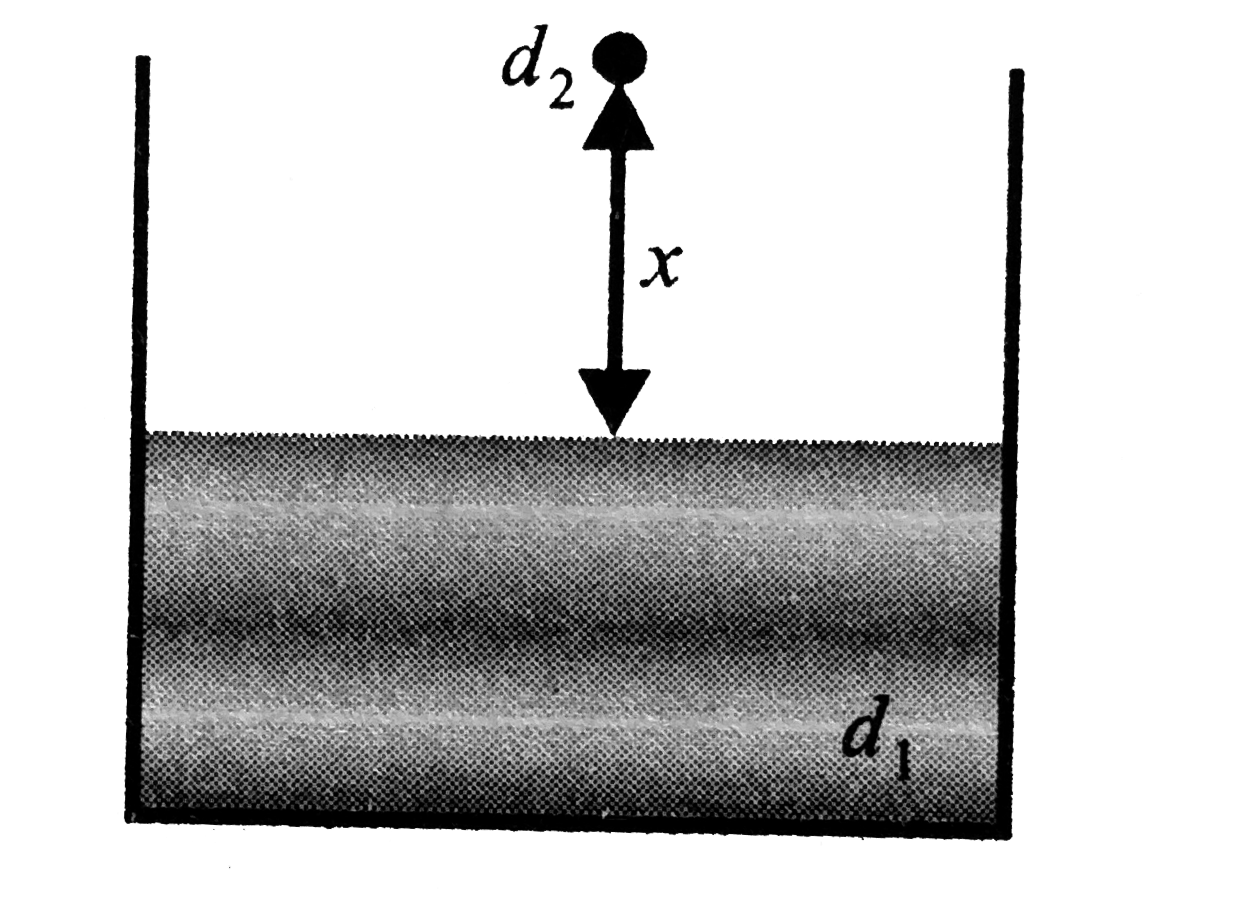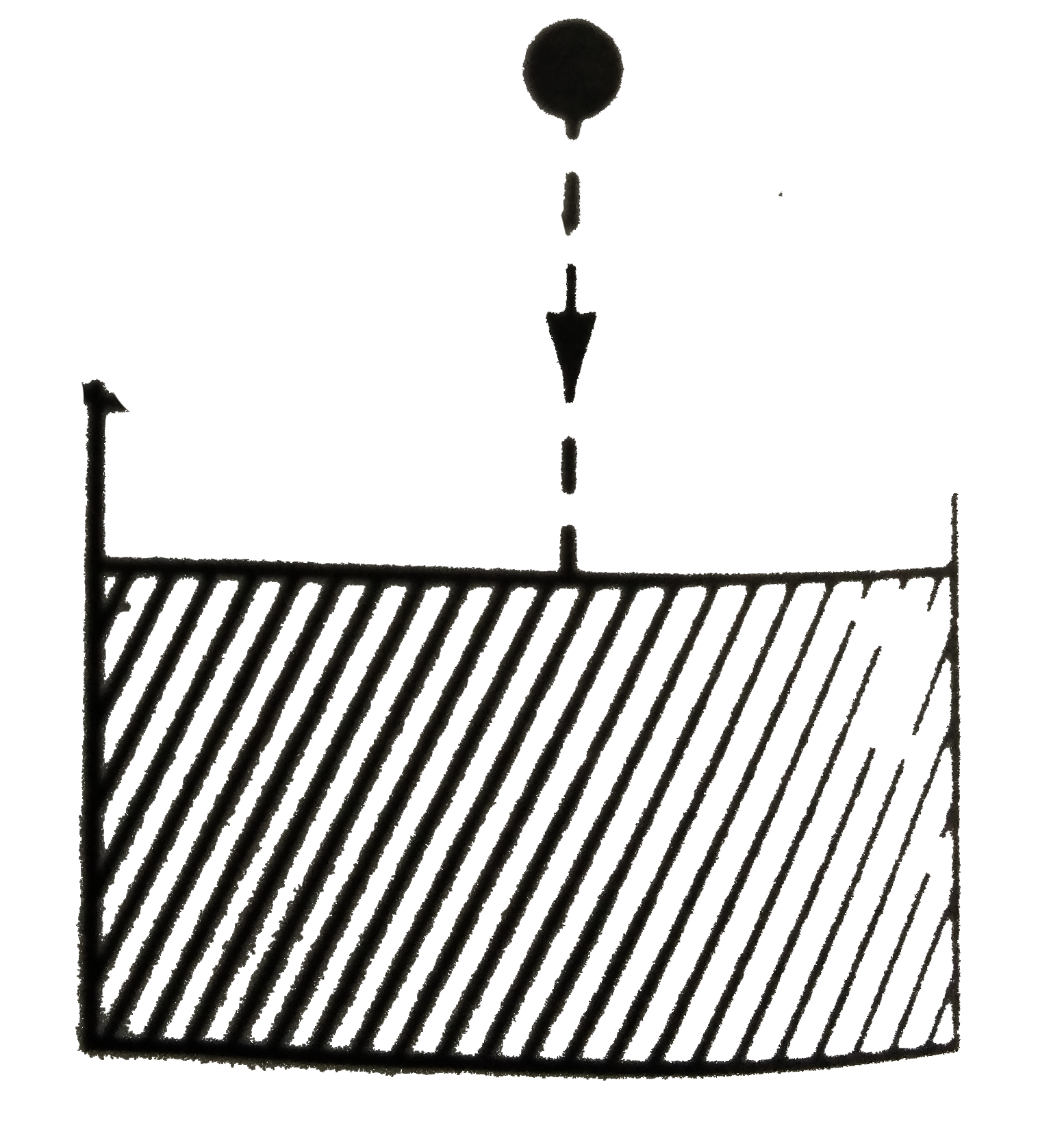A body of density is dropped from reat from a height h into a lake of density . The maximum depth the body sinks inside the liquid is (neglect viscous effect of liquid)
The correct Answer is:A
If is the velocity downwards just when the body enters the liquid the final velocity at the maximum depth it will sink is zero. Its acceleration is .
Hence maximum depth
Topper's Solved these Questions
- BOOK - CENGAGE PHYSICSCHAPTER - FLUID MECHANICSEXERCISE - True/False1videos
FLUID MECHANICS
- BOOK - CENGAGE PHYSICSCHAPTER - FLUID MECHANICSEXERCISE - SCQ_TYPE13videos
FLUID MECHANICS
- BOOK - CENGAGE PHYSICSCHAPTER - FLUID MECHANICSEXERCISE - Assertion-Reasoning8videos
FLUID MECHANICS
- BOOK - CENGAGE PHYSICSCHAPTER - DIMENSIONS & MEASUREMENTEXERCISE - Integer2videos
DIMENSIONS & MEASUREMENT
- BOOK - CENGAGE PHYSICSCHAPTER - GRAVITATIONEXERCISE - INTEGER_TYPE1videos
GRAVITATION
Similar Questions
Knowledge Check
- Question 1 - Select One
A body of density ρ is dropped from rest from height h (from the surface of water) into a lake of density of water σ(σ>ρ). Neglecting all disspative effects, the acceleration of body while it is in the take is
Ag(σρ−1) upwardsBg(σρ−1) downwardsCg(σρ) upwardsDg(σρ) downwards - Question 2 - Select One
body of density ρ is dropped from height h into a liquid having density σ(σ>ρ) .If the body just touches the of the container, then the distance of fallen would be proprotional to (Neglect viscous forces)
Ahσ−ρBhσ+ρCh×(σ−ρ)Dhρσ−ρ - Question 3 - Select One or More
A small body of density ρ' is dropped from rest at a height h into a lake of density ρ, where ρ>ρ’. Which of the following statements is/are correct if all dissipative effects are neglected (neglect viscosity)?
AThe speed of the body just entering the lake is √2ghBThe body in the lake experiences upward acceleration equal to {(ρ/ρ')−1}gCThe maximum depth to which the body sinks in the lake is hρ'(ρ−ρ')DThe body does not come back to the surface of the lake.
A body of density d2 is dropped from rest at a height x into a beaker having a liquid of density d1(d2>d1). Which of the following is/are true?
 View Solution
View SolutionA body of density ρ is dropped from reat from a height h into a lake of density σ(σ>ρ). The maximum depth the body sinks inside the liquid is (neglect viscous effect of liquid)
View SolutionA ball of density ρ is dropped from a height on the suraca of a non-visous liquid of dinsity 2ρ. Choose the correct options.
 View Solution
View SolutionAn object of density σ(<ρ) is dropped from rest at a height h into a liquid of density ρ kept in a tall vertical cylindrical container. Neglect all dissipative effects and assume that there is no spilling of the liquid.
The time taken by the object to reach the starting point (from which it is dropped) isView SolutionA ball of density ρ is released from deep inside of a liquid of density 2ρ. It will move up
View Solution

